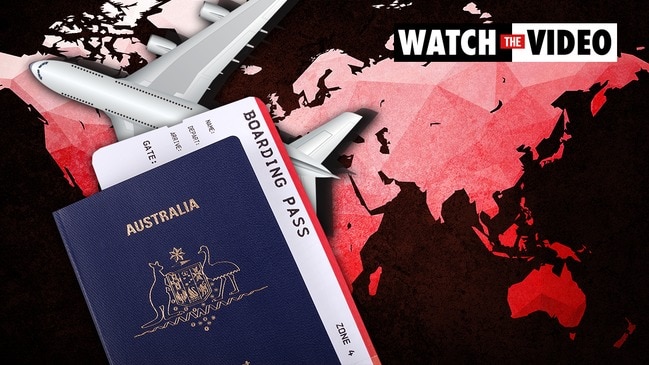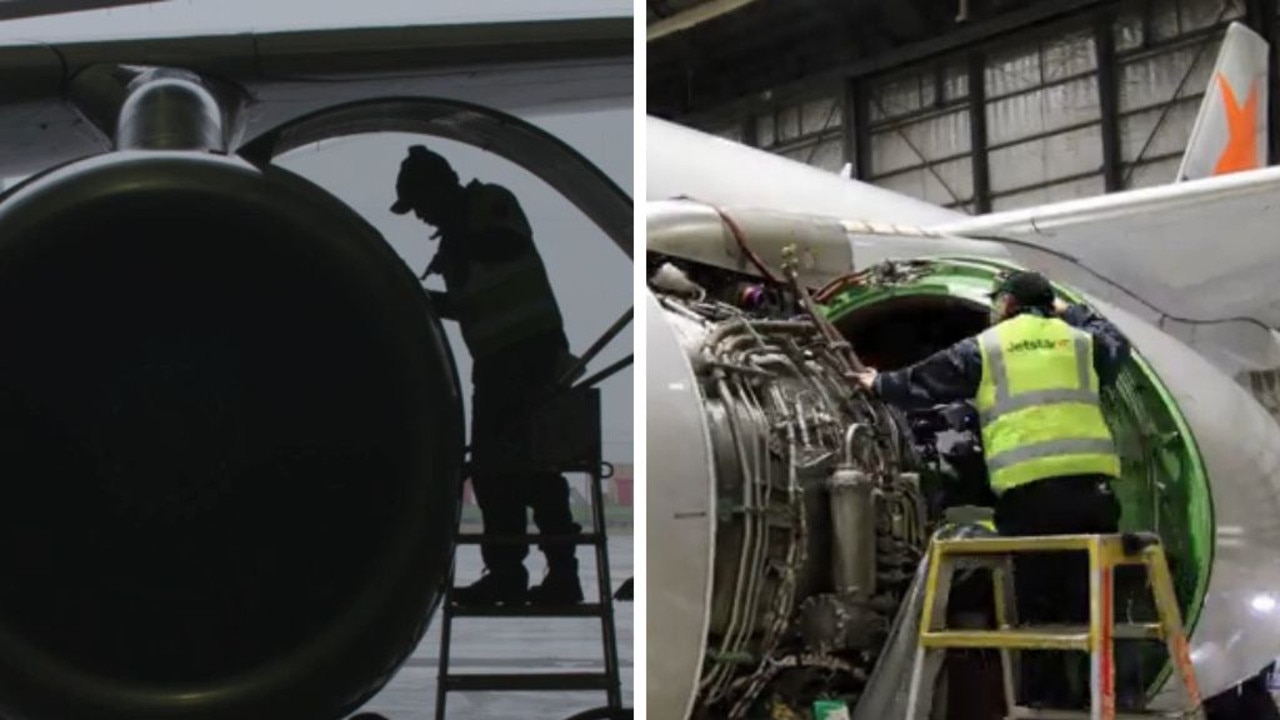COVID-19 ‘immunity passports’: The huge risk with plan to resume travel
Countries like Germany, Italy, the UK and US are looking at a plan to get people travelling overseas before a vaccine arrives. But there are risks.

It has been six months since Australia instituted a historic travel ban that prevents most people from leaving the country.
For many, that means six months of personal upheaval and separation from loved ones; for others, the frustration of unfulfilled wanderlust.
While Australia’s outgoing travel restrictions are among the most strict anywhere, all nations are struggling with how to move past blanket bans and resume international travel while keeping the risk of COVID-19 transmission ideally non-existent.
And some nations think they have the answer.
Germany, Italy, the United Kingdom, the United States and Chile are among the countries that are looking into so-called immunity passports or COVID-free passports that could unlock global travel sooner than a vaccine arrives.
RELATED: Follow the latest coronavirus updates
RELATED: ‘Makes no sense’: Flights banned until November
WHAT IS AN IMMUNITY PASSPORT?
Working on the presumption recovery from COVID-19 infection equals immunity, the immunity passports — digital or physical documents that would be used in tandem with existing passports — would prove travellers have immunity and are therefore not carrying the virus when they cross borders.
This could mean people who have already been exposed to the virus and recovered would be safe to travel, potentially unlocking the movement of millions of people worldwide.

Companies are working seriously to develop immunity passports. Among them is Israeli firm Pangea, which is working on a COVID-19 International Travel Card that would verify that travellers have immunity or are virus-free.
“The immunity ‘passport’ we developed would enable the creation of sterile areas where there is no danger of infection and where thousands of people would feel safe to conduct any activity without fear,” Pangea executive vice president Uzy Rozenthal told the Times of Israel.
“Our card and platform are one of the keys to the opening up of the skies and mass movement of millions of tourists and businesspeople from country to country.”
HUGE RISK WITH IMMUNITY PASSPORTS
The problem with immunity passports is they inherently rely on recovered COVID-19 patients developing immunity — but we don’t know enough about the virus to know if people do become immune, or how long it lasts.
In fact, last month researchers in Hong Kong said they “proved” the world’s first known documented case of a person catching coronavirus twice despite a successful recovery.
The World Health Organisation has warned against countries against issuing “immunity passports” for the simple fact it is not yet clear whether contracting the virus makes people immune, or at lesser risk of a second infection.
“There is currently no evidence that people who have recovered from COVID-19 and have antibodies are protected from a second infection,” WHO has said, adding false confidence carried the risk of another outbreak.

IS THIS A BETTER IDEA?
Rather than focusing on who has immunity — which may or may not even exist — there is a push for pre-flight tests that simply determine whether a person is infected with COVID-19 at the time of their travel.
This week, global airlines called for pre-flight COVID-19 tests for all international passengers, which they said could eliminate the need for 14-day quarantine and revive international travel.
The International Air Transport Association (IATA) said rapid antigen tests could be available within weeks and should be adopted globally under agreed standards.
Antigen tests are cheap, deliver results in minutes, and can be administered by non-medical staff with swabs. However the current antigen tests are not considered to be as effective in detecting positive results as laboratory-based tests.
“The key to restoring the freedom of mobility across borders is systematic COVID-19 testing of all travellers before departure,” IATA Director General Alexandre de Juniac said.
“This will give governments the confidence to open their borders without complicated risk models that see constant changes in the rules imposed on travel.
“Testing all passengers will give people back their freedom to travel with confidence. And that will put millions of people back to work.”

“We don’t see any alternative solution that would be less challenging or more effective,” he added.
Previously, the IATA had advocated for laboratory-based tests 48 hours before departure, but now believed last-minute airport antigen tests were more effective because they eliminated risk of forged certificates or new infections right before travel.
The last-minute tests will also “boost passenger confidence that everybody on the aircraft has been tested,” Mr de Juniac said.
Several airlines, including Etihad and Emirates, already demand negative test results before passengers can fly.
Some airports, such as Hong Kong International and Rome’s Leonardo Da Vinci, have also introduced testing on arrival.
Qantas chief executive Alan Joyce has also spoken of the potential for rapid pre-flight testing to restart international flights.
“There’s some great developments in testing that could resolve the issue of people needing to go into quarantine,” Mr Joyce said at this month’s CAPA Australia Pacific Aviation Summit.
He said rapid pre-flight tests, which could potentially deliver results in as little as 15 minutes, could determine “whether you’re exposed to COVID-19, which means if you pass there’s no need to be in quarantine at the other end.”
He said that could link countries with similar levels of infection, such as Australia, New Zealand and perhaps Japan and other Asian destinations.
“Then you could see ‘bubbles’ opening up one by one,” he said.

But rapid pre-flight tests — at least in their current form — may not be a silver bullet either.
CNN reported when airport testing was introduced in Iceland, the virus was still spreading despite negative results.
“I don’t think people have a clear concept of testing,” Missouri University of Science and Technology senior lecturer Rex Gerald told CNN.
“The moment you take the test you are negative but by the time you get home you could have interacted with people and contracted the disease.”
Still, there is expectation airport testing will be part of our travelling future.
Andrew Charlton, managing director of the consultancy Aviation Advocacy, told the UK’s The Times compulsory pre-flight health checks would become the norm.
“Even if it starts raining vaccines tonight, we are still looking at two years at least to get back to levels seen before the outbreak, and it is probably going to be more like five years,” he said.
“There will be fewer flights, fewer seats available, prices will go up and there will be very uncomfortable conditions because of the demands to wear personal protective equipment and maintain social distancing.
“Whereas we used to be able to turn up at the airport an hour or two before departure, we could see something as horrible as four hours as health checks are added to the usual palaver of check-in, security and immigration.”



